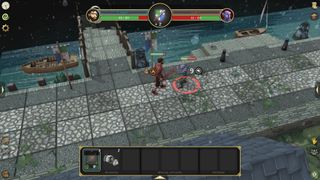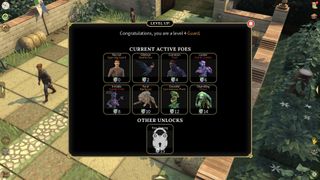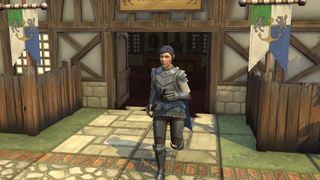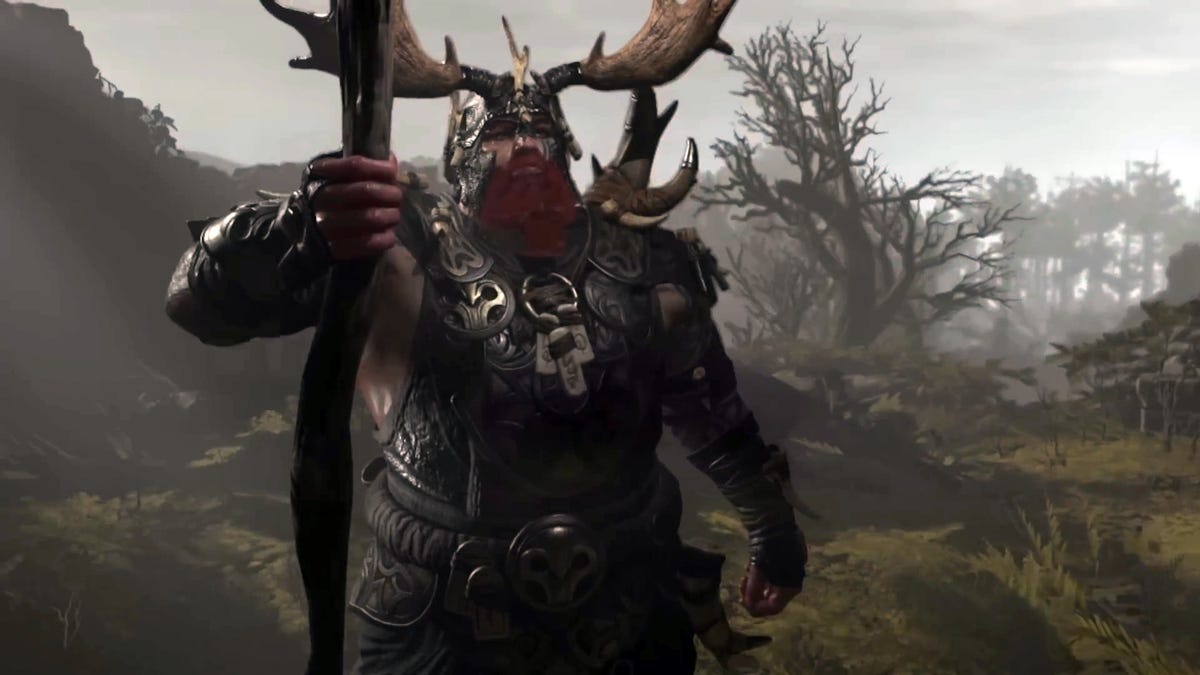When I was a preteen, finding RuneScape felt like discovering magic. However simplistic its visuals or its click-and-wait combat might have been, it was—as it was for so many wide-eyed youths gazing into the web browser of their family computers—my first taste of a world where I could gather alongside strangers in the sacred act of pretending to be cool medieval guys. It was a wonder: an expanse of goblins, barbarians, and armor-trimming scammers that I could wander at my leisure, whether I'd spend my next hours slaying dragons or doing the more honest work of trapping lobsters to sell at the Varrock Grand Exchange.
It's a high that I'm still trying to match 20 years later, even after leaving the hometown RuneScape farmstead for the big city MMOs and their action bar gameplay. With two more decades of history in other online worlds under my belt, I was interested to see what I'd make of Brighter Shores, the new early access free-to-play MMO from original RuneScape designer Andrew Goyer.
After spending a couple weeks poking my head into the RuneScape spiritual successor, what I've found is an MMO that feels more like a playable leveling guide.
In the years since leaving my RuneScape era, I gradually became aware of another kind of RuneScape player: The completionist. The optimizer. These are the grind enthusiast ascetics, who derive a joy from progressing skills that I wish I could find even a fraction of in my own hobbies—who've grown to love their time in RuneScape's world so much that they'll spend 2,500 hours catching the same fish simply because they're already "content with everything."

Brighter Shores feels obsessively devoted to that linear, incremental, numeric progression. Unfortunately, it only has a perfunctory interest in the world surrounding it. RuneScape's seamless, open world was, to my preteen brain raised on Zelda games and Tolkien, raw possibility that I could uncover simply by walking towards the limits of the draw distance horizon. Brighter Shores, meanwhile, is a sequence of profession interactions plotted across a series of rooms.
My hours with Brighter Shores felt like something I'd been prescribed more than something to gradually explore.
Its world is divided into small, walled-off, grid-based stages, connected to their neighboring areas by defined exit points. Because you can't see what's in the next area over until you're in it, walking from one zone to the next feels like warping between self-contained pockets suspended in a void.
Anything you'll unlock for one of your professions—every foe you can fight, plant you can gather, fish you can catch—has its defined place in one of those cubicles. From fisherman level four, I could catch Sandy Pufferfish, exclusively at Wilhope Crossing. At forager rank two, I could pick Creamy Wallplants at Old Street West or Old Street East—zones that encompass just half a block's worth of medieval street each.

There is only one place for brewing alchemy potions. There is only one kitchen for cooking food. Because every profession unlock is telegraphed in advance, there's little space for a sense of discovery, few moments where you enter a new area and go "When the hell am I going to get to mess with whatever that is?"
My hours with Brighter Shores felt like something I'd been prescribed more than something to gradually explore. As I leveled up my professions, the notifications that I'd unlocked a new catchable fish or brewable health potion didn't evoke the excitement of possibility that a new resource or activity should; it felt like being told to proceed to Fishing Room C for my next designated angling session. It's a bummer.
Professions in Brighter Shores are region-specific, too. The game's divided into "episodes," two of which are only accessible through the game's paid premium membership. As you progress from one episode to the next, you leave your professions—including your combat skill—at the door. Your progress is maintained for when you come back, but you won't be doing any Fisherman activity in Hopeforest. That's Hopeport business only, friend, and anything you'll want to fight along the way will involve leveling an entirely separate combat skill.
For many of us with RuneScape chapters in our personal histories, it managed to make its world of low-poly models feel so much bigger. As it stands today, Brighter Shores is too siloed-off to capture that same magic.

 2 hours ago
2
2 hours ago
2







:quality(85):upscale()/2024/11/07/789/n/1922153/38527352672cff57bff864.87043841_.png)
:quality(85):upscale()/2023/11/02/731/n/1922729/5b5445f96543cf5c21d629.18264167_.jpg)
 English (US) ·
English (US) ·